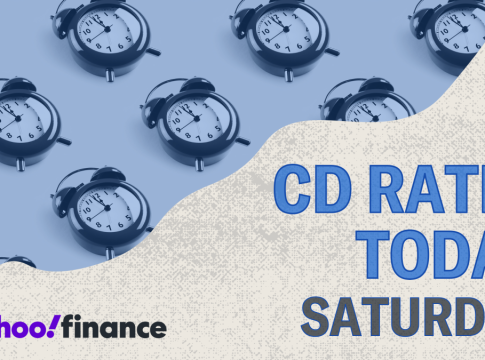Locking In High CD Rates: A Timely Opportunity
As interest rates fluctuate, now might be the perfect moment to explore certificates of deposit (CDs) and lock in a competitive rate. The Federal Reserve has made significant cuts to its federal funds rate throughout 2024, suggesting a potential decrease in available CD rates in the near future. So, if you’ve been contemplating investing in a CD, it’s time to take action.
Why Consider a CD?
CDs can be an attractive avenue for earning interest on your savings because they often offer higher rates compared to standard savings accounts. However, it’s essential to shop around, as rates can vary significantly among financial institutions.
Current CD Rates: What to Expect
As of June 21, 2025, one of the best offers comes from Western Alliance Bank, boasting a 4.4% annual percentage yield (APY) for a 3-month CD. With a mere $1 minimum deposit, this could be a low-risk opportunity to grow your money.
Typically, the most competitive rates are found in shorter-term CDs, especially those with a duration of one year or less. Online banks and credit unions are particularly known for offering attractive rates, so consider them in your search.
Understanding Your Earnings
The interest you earn from a CD can be expressed through the APY, which reflects your total earnings over one year, factoring in the interest rate and how often it compounds. For instance, if you invest $1,000 in a one-year CD with a 1.81% APY, you’d end up with about $1,018.25 after a year, yielding $18.25 in interest.
Now, picture opting for a one-year CD with a 4% APY: your balance would rise to approximately $1,040.74, meaning you’d earn $40.74 in interest. If you increase your deposit to $10,000 at the same rate, you’d see a total of $10,407.42 upon maturity, translating to $407.42 in interest!
Types of CDs to Consider
While the interest rate is a primary factor in choosing a CD, it’s not the only consideration. Here are some types of CDs that may offer additional benefits:
-
Bump-up CD: This type allows you to request a higher rate if your bank’s rates increase during your term—though typically only once.
-
No-penalty CD: Also known as a liquid CD, this option lets you withdraw your money before maturity without incurring penalties.
-
Jumbo CD: These require a hefty minimum deposit, usually $100,000 or more, but in today’s market, the interest difference between traditional and jumbo CDs might not be as significant.
- Brokered CD: Purchased through a brokerage instead of directly from a bank, brokered CDs may offer higher rates but come with added risks and may not be federally insured.
Final Thoughts
As you consider where to put your money, take the time to compare the various CD options on the market. In this dynamic financial landscape, locking in a high rate today could safeguard your savings against future declines. Whether it’s a bump-up CD for potential flexibility or a traditional CD for straightforward savings, each choice will have its merits depending on your financial goals. Don’t miss out on this opportunity—take control of your financial future now!

Writes about personal finance, side hustles, gadgets, and tech innovation.
Bio: Priya specializes in making complex financial and tech topics easy to digest, with experience in fintech and consumer reviews.

